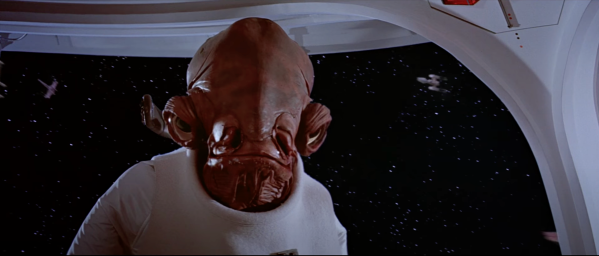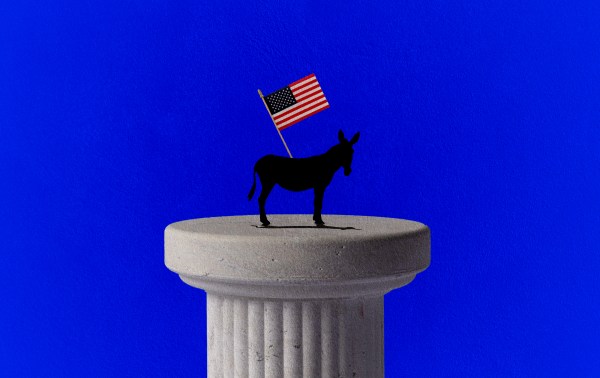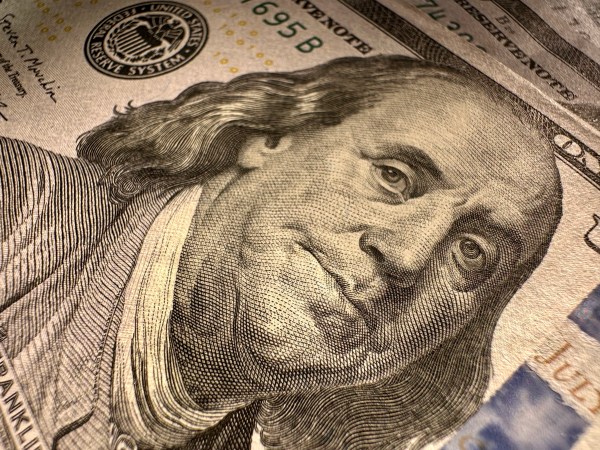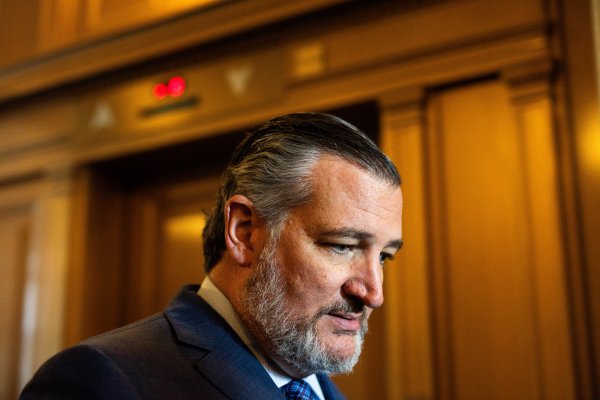“The federal bureaucracy situation is much worse than I realized,” Elon Musk, the billionaire dilettante tasked by that other billionaire dilettante with reforming the federal bureaucracy, said earlier this week. “I thought there were problems, but it sure is an uphill battle trying to improve things in D.C., to say the least.” The Tesla boss is out of DOGE and out of the administration and has announced a general retreat from political engagement, having discovered—as one will—that all this “easy” and “obvious” and “common sense” stuff turned out to be ... hard.
Welcome to the party, you plank.
We’ve been here before, of course. Donald Trump and his team have been three weeks away from announcing a groundbreaking new health care plan for ... what, just about a decade now? Donald Trump’s confidence in addressing a complex subject has a linear relationship to his ignorance regarding that subject, and so we have got gems like this presidential declaration of ineptitude: “Nobody knew that health care could be so complicated.” It isn’t the case that nobody knew—lots of people knew. Some of those people had good ideas, some had terrible ideas, but they knew it was complicated. The guy who didn’t know? The one who spent most of his life as a Manhattan gadfly, a game-show host with side hustles in pro wrestling and porn. That guy didn’t know.
The problem—one of the problems—is that that guy doesn’t know what he doesn’t know.
An “outsider,” his admirers like to call him. And Trump is an outsider in Washington in the same way that a guy who skipped every class but shows up for the final exam is an outsider in Physics 101. Maybe he’s the captain of the football team or a trust-fund dork from Queens. The problem isn’t that he’s from a different social milieu from the nerds who did the reading—the problem is that he doesn’t know anything and is too arrogant and slothful to do his homework.
And it shows.
Trump insisted that “trade wars are good and easy to win,” but he has been backed down and forced to reverse himself at every turn. Much money is being made on the “TACO” trade, what the finance guys call their current profitable strategy of betting that Trump will always change course when things get hard—TACO being an acronym for Trump Always Chickens Out.
“Trump, the supposed master negotiator, is as a matter of practical fact able to effectively negotiate exclusively in situations in which no substantial negotiation is required: with people he can fire, for example, or with utterly dependent parties.”
Trump vowed that he’d put an end to the brutal Russian assault on Ukraine (not that he’d speak about it that honestly) before even taking the oath of office the second time around, and, when Vladimir Putin more or less laughed in his face, he was reduced to passive-aggressive social media posts: “What Vladimir Putin doesn’t realize is that if it weren’t for me, lots of really bad things would have already happened to Russia, and I mean REALLY BAD. He’s playing with fire!” Not something ... REALLY BAD! Oh, dear, anything but that. Say what you will about a murdering degenerate such as the Russian caudillo, there isn’t any PACO trade being giggled about up and down Wall Street.
I meet a lot of conspiracy kooks in my life, from inside-the-Beltway types raging against the “deep state” to your old-fashioned Jews-run-the-Fed types, and they all sound alike to me after a point. Here’s a little whisper from a guy who has spent a good deal of time with Washington’s sausage makers and who was (relevant to the conspiracy nuts) present for the infamous events at Waco, Texas, in 1993: There are no conspiracies. There are no secrets. Everything is more or less what it seems. Trump critics sometimes are vulnerable, too, with whispers of Russian kompromat or mob debts or secretly diagnosed mental illness. But the obvious explanation for Trump’s eccentricity (or most anything else) is almost always the correct explanation. Which is why I have been writing for all these years that the key to understanding the Trump administration is that its central figure, Donald Trump, is stupid, lazy, and angry. Almost any of his seemingly inexplicable actions can be explained by picking some ranked combination from this list:
- Stupid
- Lazy
- Angry
- Stupid and Lazy
- Stupid and Angry
- Lazy and Angry
- Stupid, Lazy, and Angry
- Lazy and Stupid
- Angry and Lazy
- Angry and Stupid
- Stupid, Lazy
- Stupid, Angry
- Lazy, Angry
- Stupid, Lazy, Angry
- Lazy, Stupid, Angry
- Angry, Stupid, Lazy
That’s it. There are people around Trump, such as Marco Rubio and J.D. Vance, who are not stupid or lazy (though both are distinctly angry men) but are functionally indistinguishable from the stupid and the lazy because they are throne-sniffing sycophants who dread a return to the private sector more than almost anything else in this life. When smart and active people who lack integrity decide to reorganize their lives and their souls to accommodate the whimsies and toddler tantrums of a man who is (see 1-16 above), they end up conducting their careers as though they themselves were similarly afflicted. That’s a mistake. Trump isn’t mentally disabled, but if your shower temperature were the same number as his IQ, you’d be shopping for a new water heater.
It is a lot easier to replace a water heater than to replace a president, to revive a wrecked political party, or to buy your soul back after selling it at whatever bargain-basement price poor old J.D. Vance got.
It's all right there to see: Trump, the supposed master negotiator, is as a matter of practical fact able to effectively negotiate exclusively in situations in which no substantial negotiation is required: with people he can fire, for example, or with utterly dependent parties. He calls this “negotiating from a position of strength” instead of “bossing around your cowering flunkies.” Even when a party that is largely dependent on the U.S. government and the goodwill of the Trump administration has a modicum of independence and agency, Trump finds it nearly impossible to get his way: e.g., the Benjamin Netanyahu government in Israel, our European trading partners, Apple, etc. A guy who cannot successfully boss around Jerome Powell isn’t going to twist Vladimir Putin’s arm with any great success.
Again, there’s no mystery here: These people don’t know what they are doing. Elon Musk’s personal state of ketamine-enhanced pristine ignorance may be his and his alone, but the sober ignoramuses around him are no less ignorant for their sobriety. (Or relative sobriety over at the Pentagon.) Donald Trump is a jumped-up dolt. Director of National Intelligence Tulsi Gabbard and Health and Human Services Secretary Robert F. Kennedy Jr. and FBI Director Kash Patel are conspiracy kooks, fools, and ignoramuses. Steve Witkoff, Trump’s special envoy to the Middle East, is an incompetent. Defense Secretary Pete Hegseth is a booze-addled, second-tier morning-show host. Kelly Loeffler, head of the Small Business Administration, is a billionaire dilettante whose previous big job was serving as CEO of a company owned by her husband. Who does that leave? Bootlicking toadies setting themselves up to get on (or back on) the Fox News gravy train post-Trump and ride it until it runs out of money. Jeanine Pirro. Stephen Miller.
And poor, puzzled Elon Musk, who has tucked his tail between his legs and run off to Texas complaining that the “federal bureaucracy situation is much worse than I realized.” His No. 2 at DOGE is leaving, too. It was bigger than they realized, Musk says. Maybe he should have consulted somebody who knows something.
Because Musk and Trump and those around them apparently don’t know the first thing about what’s actually going on in Washington.







Please note that we at The Dispatch hold ourselves, our work, and our commenters to a higher standard than other places on the internet. We welcome comments that foster genuine debate or discussion—including comments critical of us or our work—but responses that include ad hominem attacks on fellow Dispatch members or are intended to stoke fear and anger may be moderated.
With your membership, you only have the ability to comment on The Morning Dispatch articles. Consider upgrading to join the conversation everywhere.